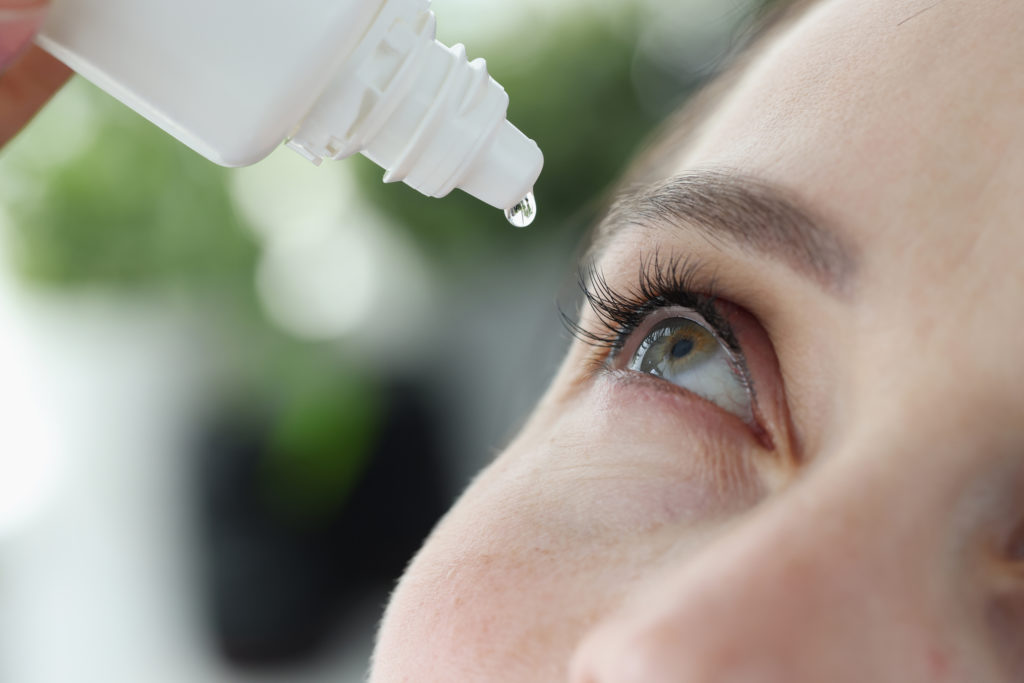As people get older, many often experience reading problems due to blurriness in their near vision in a condition called presbyopia. Now, instead of reaching for a pair of prescription reading glasses, AbbVie’s eyedrop formulation Vuity could offer help in correcting far-sightedness as the US Food and Drug Administration (FDA) granted approval to it late last week. Vuity is a 1.25 percent pilocarpine HCL ophthalmic solution made by AbbVie-owned Allergan.
With the approval, Vuity becomes the first eyedrop approved for presbyopia.
Presbyopia is a common eye condition that begins around the age of 40 and progressively worsens until the age of 65 or so. It is characterized by difficulties in focusing on nearby objects, which is caused by a loss of flexibility in the lens of the eye. The flexibility of the eye lens allows it to change shape to focus light onto the retina; with age, this elasticity is lost.
The age-related blurry near vision condition affects nearly 128 million people in the US, which is almost half of all American adults. The lone treatment option for presbyopia has been corrective lenses such as glasses, bifocals and contact lenses.
Now, Vuity offers patients a daily eye drop treatment that provides temporary relief from the blurry vision associated with the condition. Vuity’s formula is fast-acting, working as quickly as 15 minutes after administration and lasting for up to six hours. Importantly, it improves near and intermediate vision without affecting distance vision.
Vuity will be available by prescription.
Related: Genentech’s New Ocular Implant Drug Delivery System for Macular Degeneration Could Be a Game Changer
“Most adults cope with presbyopia, or difficulty with near vision, as we age. Beginning around the age of 40, many find themselves using reading glasses, holding text further away, or even increasing the font size and lighting on screens to try to see more clearly,” Michael Severino, MD, vice chairman and president, AbbVie, said in a statement from the company.
“We are proud to offer Vuity as a first-of-its-kind once-daily eye drop that we believe will change the way people and their eye doctors approach presbyopia. The FDA approval of Vuity exemplifies our continued pursuit of innovative new treatments that push the boundaries of what’s possible in eye care.”
Vuity’s active ingredient, pilocarpine, is an anti-cholinergic agonist that is used to treat elevated pressure in the eye caused by glaucoma or other eye conditions.
Using a proprietary technology called pHast, AbbVie has created a formulation of pilocarpine optimized for presbyopia. The formulation allows for rapid adjustment to the physiologic pH of the tear film. Moreover, AbbVie says Vuity uses the eye’s own ability to reduce pupil size, improving near vision without affecting distance vision.
Vuity received the FDA approval based on data from two pivotal Phase III clinical studies, Gemini 1 and Gemini 2, which assessed the efficacy, safety and tolerability of the eyedrop for the treatment of presbyopia.
Vuity met the primary endpoints of both studies, with significant improvement in near vision in low light (mesopic) conditions without affecting their distance vision compared with placebo. A greater proportion of presbyopia patients (31 percent in the Gemini I trial and 26 percent in the Gemini 2 trial) that were given Vuity were able to read three additional lines on a reading chart three hours after treatment at day 30 compared with vehicle placebo (eight percent in the Gemini 1 trial and 11 percent in the Gemini 2 trial). The differences between the two treatment arms were maintained up to the six-hour mark. Vision improvement was observed as early as 15 minutes post-eyedrop administration.
There were no serious adverse events observed in participants that received Vuity in either of the two studies. The most common adverse events reported at low frequency (less than five percent) were redness of the eye and headache.
The innovative new eye treatment from AbbVie does have some competition. In May, New York biotech Eyenovia announced positive trial results for its drug-device combo called MicroLine for the treatment of presbyopia. The company is planning an additional Phase III trial by the end of the year. MicroLine delivers small doses of pilocarpine into the eye using the company’s Optejet dispenser. The company says the device allows for more consistent doses to be administered, while only using about one-fifth of the volume of a conventional eyedrop.












Join or login to leave a comment
JOIN LOGIN